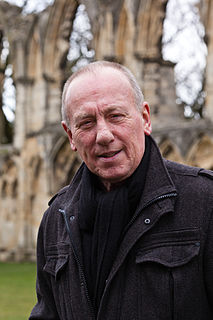A Quote by Stephen Vincent Benet
Related Quotes
I worked with the Nato Military Committee. The Head of the Luxembourg Armed Forces had equal standing with me, and I had to respect that. He was the leader of the armed forces of a sovereign country. I had to make sure he never thought that I was looking down on them, merely because they had less power than we did. With that kind of approach you can develop bonds of trust. I tried to do the same thing with my colleagues when I was Secretary of State.
I had just finished playing a doctor in Doctors' and I had had to tell somebody that they had cancer. In that moment I thought, He's doing what I did!' We sat down and he said, I'm sorry, Mr. Timothy, but I've got bad news.' I thought, Oh!' He told me that they had found cancerous cells, but not a lot.
Our Founding Fathers never meant for Washington, D.C. to be the fount of all wisdom. As a matter of fact they were very much afraid if that because they'd just had this experience with this far-away government that had centralized thought process and planning and what have you, and then it was actually the reason that we fought the revolution in the 16th century was to get away from that kind of onerous crown if you will.
Frankly, the president, during the first opportunity I had to be in a Cabinet meeting, before we started the meeting, he said, Folks, before we begin this meeting, I'm going to call on General Ashcroft and ask him invite the wisdom and presence of God in what we do. And I thought to myself how ashamed I'd been that so many times in my life I had entered upon great important tasks and I had cheated myself and those that I had served of a blessing.
Nobody before the Pythagorean had thought that mathematical relations held the secret of the universe. Twenty-five centuries later, Europe is still blessed and cursed with their heritage. To non-European civilizations, the idea that numbers are the key to both wisdom and power, seems never to have occurred.




































